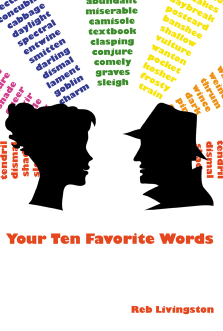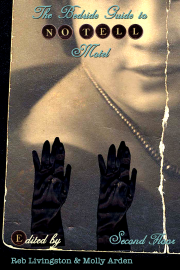Recession Poetry
As you may of heard by now, The Dodge Foundation announced it won't be holding its bi-annual festival as "we know it" -- meaning it will be scaling back on all of its poetry initiatives for at least the next two years. It mentioned a 30% decline in its assets (honestly, 30% doesn't sound so bad, I can only wish for a mere 30% loss in assets). As one of the better financed poetry organizations out there, this should be the final wake-up call to anyone still not getting it: Some, perhaps many, of your favorite poetry endeavors are going to change dramatically or go away completely. Now I've been to a few Dodge Festivals and it's not my idea of a good time, I found it rather painful to endure, but this announcement makes me sad nonetheless. This is a popular, well-attended, high profile poetry event and that's not enough right now.
Expect to receive many pleas for donations, more contests and higher reading fees. Funding and sponsorships are drying up, sales and subscriptions are down, universities are slashing budgets, investments are wiped out, advertising is down and some people who uses proceeds from their money jobs to support their projects have lost (or will) those money jobs. The big corporate for-profit presses are cutting and reorganizing and guess what's being dropped with no thought at all? Everything that's not making a big profit.
The only poetry projects that are going to get out of this unscathed are the ones with very low overheads. I don't worry about how I'm going to continue No Tell Motel, but I do worry about No Tell Books. Even though I keep the overhead pretty low for publishing a book, coming up with $1000 per book is a lot different now than it was 2 years ago. Especially when sales are dropping. I'm publishing fewer books, not reading any new manuscripts (why accept a book if I'm not sure I can actually publish it?), and will likely try to find some new corners to cut, such as sending out fewer review copies to save on the short run and postage. I'm also not offering consignment for most bookstores (unless they've demonstrated in the past that they will indeed pay). I have lost too much money dealing with bookstores not honoring agreements or not even bothering to respond to invoices and inquiries. I can't do it anyone. They're not the only one's struggling. I want to be able to publish at least one book a year. Eating the cost of 25 unpaid books and having 8 returned in damaged, unsellable condition is not something the press can endure in 2009.
A couple months ago I received an e-mail from an online magazine asking for donations to raise 10k for a redesign and new software to cut down on html programming. This is ridiculous. There are free and inexpensive softwares to do this. Asking people at a time like this for money towards an unnecessary, poorly-considered project doesn't seem like the way to go. Find a smarter way to update and redesign your online magazine. Somebody is taking advantage of these editor's ignorance. Now is not the time editors and publishers can afford to be ignorant.
And many editors and publishers are being smart. What you may not realize is that your favorite press has quietly switched to print-on-demand, or changed to a hybrid model where they do a small first run and all copies after that are POD. More print magazines are transitioning to online. Or printing fewer pages on on lighter stock.
And of course, expect to see more contests and higher reading fees. My aunt once told me that if she had to do it all over again, she'd start a business that sold cigarettes, liquor and lottery tickets because no matter what the economic times are, people always find money for those things. Some presses and magazines will squeak through the recession not by selling poetry, but by making money from people's desire to be published. Can you blame them?
If there's a print magazine that you really love and would hate to see go away, subscribe to it. If you're already subscribed to it, get a subscription for a friend. Ask your library to get a subscription. If you can afford to buy books, now is the time to buy them, especially from small presses. If you teach, incorporate more small press titles into your reading lists. Review and talk about books you love to help get the word out. Small gestures like this do make a difference to small presses and magazines.
This is not going to be a situation where the "cream will rise" or only the best will be left standing. It's going to be which ones can figure out how best to adapt to financially tight circumstances. On the upside, I believe this will spur more innovation in distributing poetry to an audience. We need that. It'll be too expensive to stay stuck in outdated models. Legitimacy will leave you standing on a street corner wearing a barrel as you compete with dancing monkeys for pocket change.






9 Comments:
I am always so pleased that you are outspoken about all of this. The way the poetry business is conducted is really stupid, like a non-functional evolutionary vestige -- maybe humans with tails? Perhaps this is the chance for us to finally get rid of those tails.
I'm hoping for more low-fi chaps, more pdfs, etc. This year I've committed to using any book money I might have on work without ISBNS from micro-micro-presses and self-publishing authors, as it seems like those are the people who will do right by the money.
Very few people are going to get hired to teach creative writing anymore, anyways, so the cv-plumping will be moot. Sometimes in constraint we find some real freedom, I guess.
That sounds like a really good use of your money -- straight to the artists, cut out the middle people completely.
I agree, constraint can be incredibly freeing.
And your comment about tails is making me think of the poetry business being like the parents in Geek Love.
I was to start up a micropress with fellow poet and blogger Kate Evans this year, but we are thinking it's going to have to wait until 2010. We have our first two books lined up, but as you noted, coming up with $1000 per book is impossible now. This is not a good year to be a publisher or a poet -- although many might argue it's never a good time -- but 2009 seems like the year to branch out to something besides poetry. My manuscript is in the drawer and I'm focused on fiction.
Interesting post today, Reb. I just noted on my own blog that Tilt Press, while not charging shipping fees this year, will have to charge for shipping next year. We simply can not eat almost a dollar per chapbook - and that amount is for domestic shipping only - international rates are insane. BUT, I do adopt the small first print run AND I do print on demand. This keeps me busy, but I am able to manage the money flow this way so that we can continue to publish emerging poets. I refuse to charge reading fees - so I do hope people realize it's about purchasing books from small print presses. I've thought about putting a donation button on the website, but I don't think I can bring myself to take money without offering something in return.
Hopefully, Obama's inaugural poetry reading will inspire people to go out and buy poetry.
Geez, as a wannabe poet and aspiring writer, this sure isn't encouraging. Not that I expected to get rich, but I was hoping I wouldn't have to be homeless... been there done that, it's no fun. Shit. Maybe I need to look for a job at Starbucks.
Come to think of it, that won't work out either. I heard that Starbucks is closing some of its stores. Shit. I'm screwed.
If I give you $1000, what are the odds of my getting back $1001?
Good post. I wrote a similar one -- partly in response to yours.
Post a Comment
<< Home